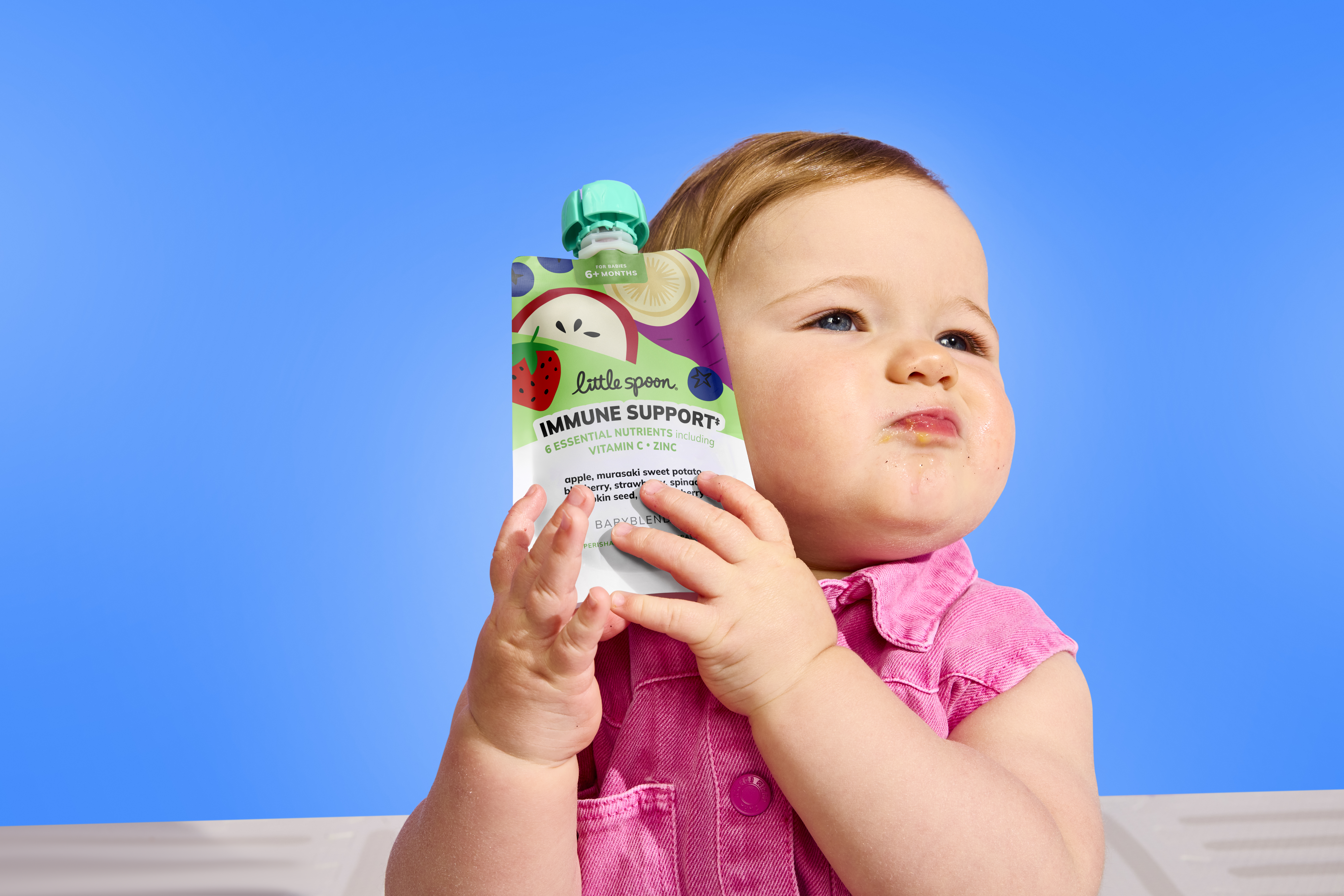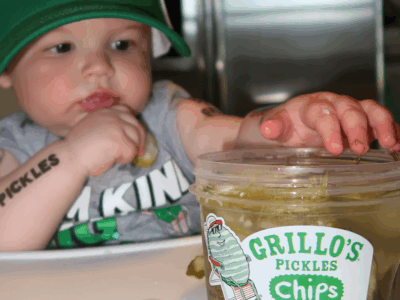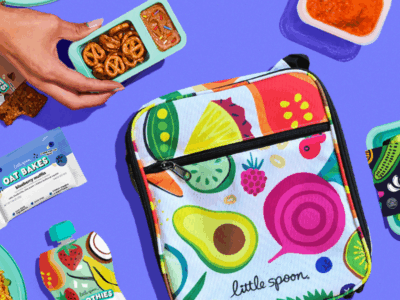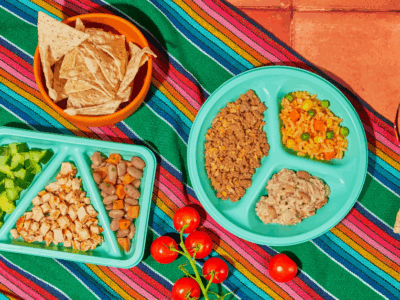As a parent, you’ve probably seen baby food pouches everywhere—or maybe you already keep a few in your diaper bag for emergencies. They’re convenient, mess-free, and let’s face it, a real help when you’re on the move. But should they be part of your baby’s everyday routine?
Let’s chat about how baby food pouches can sometimes fit into your baby’s diet—and when to stick to more traditional feeding methods.
When Baby Pouches Can Be Helpful
Pouches can be a helpful on-occasion option—especially for busy families. Here’s when I think they can be useful:
- On-the-go nourishment: Whether you’re stuck in traffic or traveling, pouches are a mess-free, utensil-free way to give your baby a quick snack, particularly when mess isn’t really an option.
- Emergency backup: If you’re running late or unexpectedly out of the house, a pouch can be a helpful Plan B.
- Nutritious additions like Little Spoon: Some brands, like Little Spoon Babyblends+, go beyond basic pouches. They offer blends packed with DHA, choline, probiotics, and essential nutrients for brain, immune, or gut health— all USDA Organic, non-GMO, and with no added sugars.
Why I Don’t Recommend Them for Daily Use or At-Home Feeding
Although convenient, baby pouches shouldn’t be used as a daily go-to. Here’s why:
- They skip important learning steps: Babies need to learn the skill of eating – either by spoon feeding and/or finger foods. This helps with oral motor development and builds skills for chewing and speaking.
- Limited sensory experience: Pouches don’t offer the textures, smells, and visuals of whole foods, which are critical for building curiosity and reducing picky eating later.
- Passive eating: Sucking on a pouch is fast and easy—but that’s part of the problem. They don’t encourage babies to interact with food or respond to hunger and fullness cues in a meaningful way.
The Importance of Hands-On Eating
Whether you’re doing purees or baby-led weaning, what matters most is encouraging real interaction with food:
- Spoon feeding encourages sensory exploration, flavor exposure, and helps babies practice moving food around in their mouth.
- Finger foods build independence, improve coordination, and teach chewing early.
- Mess is part of the magic! Getting food on their hands, face, and tray is important for sensory development and helps to reduce fear around new foods.
Bottom Line
Baby pouches—especially high-quality ones like those from Little Spoon—can be a part of your toolkit for those hectic days or out-of-home moments. Their thoughtful formulations with brain-boosting nutrients or gut-friendly probiotics make them a better choice than many conventional snacks. But at home? Stick to purees and solids. Help your baby build real-world eating skills one bite (and yes, one mess) at a time.



